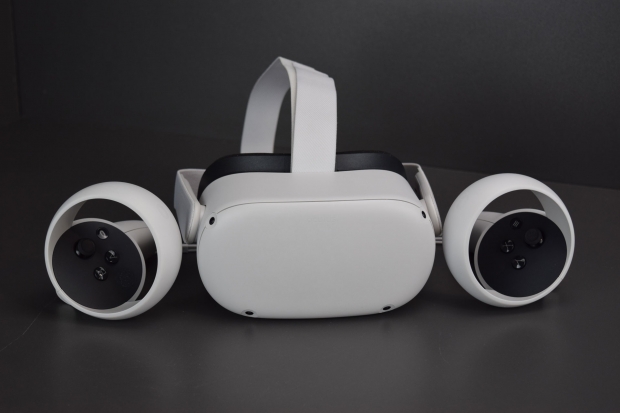During a live AMA session on Instagram Wednesday evening, a viewer asked Zuckerberg what Facebook is doing to lower the barriers to emerging technologies like augmented reality. Zuckerberg's response was surprisingly candid and it revealed highlighted why Oculus will remain a dominant brand in the XR space for years to come.
Zuckerberg is on a mission to put as many people as possible in XR devices in the next 10 years, and he's ready to lose money to make it happen. Like the console market has historically done, Facebook will forgo up-front profits on hardware sales, and may even sell devices at a loss, with the expectation of coming out ahead through software sales.
Zuckerberg said he believes that making XR devices accessible requires two things: A high-quality wire-free experience, and a cost that consumers can afford. There may always be tethered headsets, but Zuckerberg thinks those devices will remain niche products.
"I think we'll see the market split to wired experiences which are maybe less accessible to a broader number of people. And then the things that are going to be the mainstream line of technology, even if it's a little harder to develop, getting on that wireless path is really important," said Zuckerberg.
"The other piece that you were alluding to is just getting the price to be as affordable as possible. If your mission as a company is to serve as many people as possible, then fundamentally, you're not trying to charge a premium for your devices. Or you're trying to drive the price down as much as possible, including potentially doing what consoles have historically done, which is, at the beginning when they ship something they know that they are going to be selling it for a little bit [of a loss] and that eventually, they're going to make it cheaper. But they subsidize it a little bit upfront with the hope and expectation that they'll make that up with app sales and other experiences, and the rest of the economy around it."
"That's going to be more of our plan in VR and AR. We're coming at this from the perspective of how do we get this in as many people as possible hands. We're not going out of our way to charge a premium. I think that is going to be a pretty big defining thing for how many people can use this stuff over the next 5-10 years."


